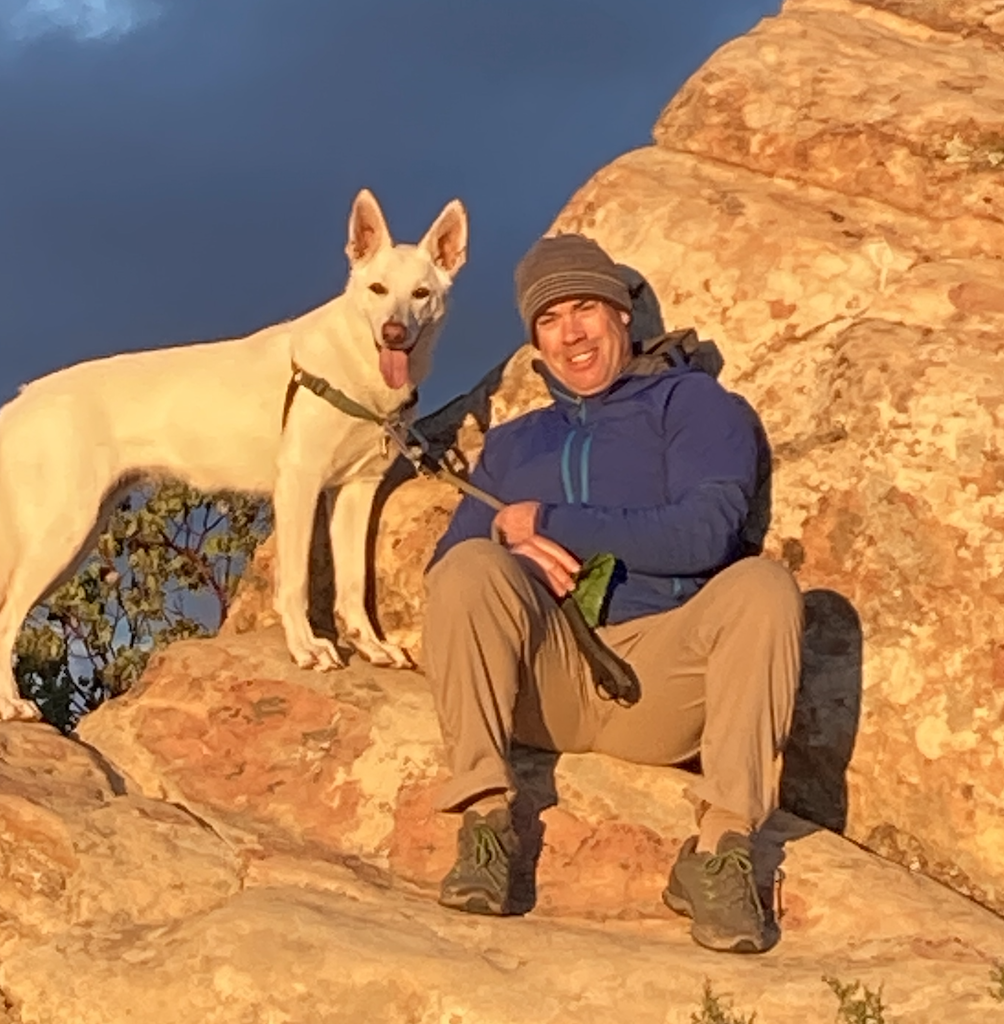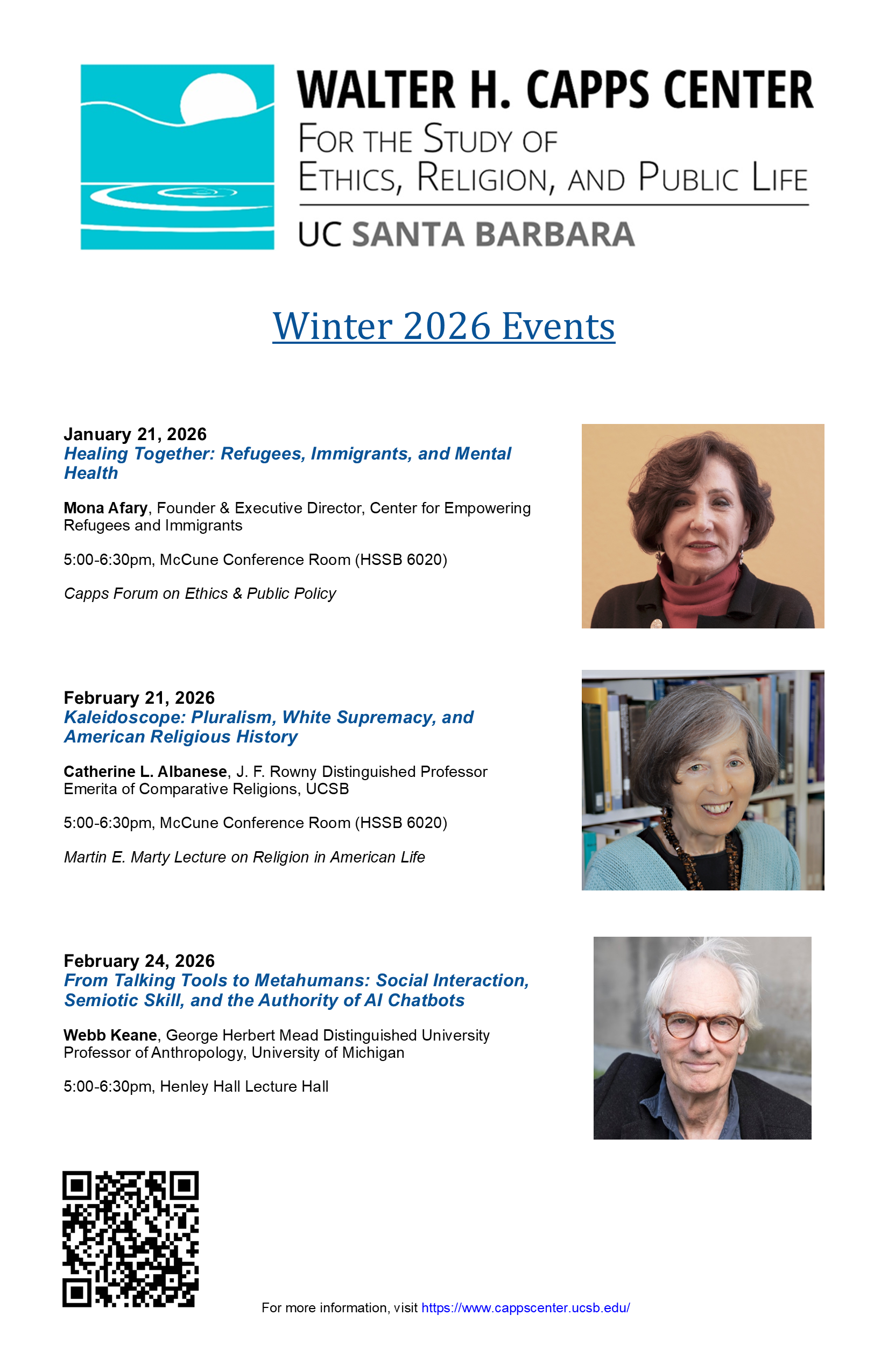Welcome to the Walter H. Capps Center
Welcome to the Winter Quarter and the new year 2026!
We at the Capps Center are eager to see you at our events in the coming months. Our quarterly program includes several exciting lectures and a number of co-sponsored events with campus and community partners:
-
January 12: “A Legal Sanctuary: Religious Freedom Laws and Immigration Enforcement,” with Thomas Scott-Railton (attorney, Gupta Wessler LLP)
-
January 21: “Healing Together: Refugees, Immigrants, and Mental Health,” with Mona Afary (Founder & Executive Director, Center for Empowering Refugees and Immigrants)
-
February 5: "2026 Luis Leal Award Ceremony," with Julissa Arce (author, producer, speaker)
-
February 21: “Kaleidoscope: Pluralism, White Supremacy, and American Religious History,” with Catherine Albanese (Professor of Religious Studies, UCSB)
-
February 23: “The Price of Outsourcing Governance: The U.S. Supreme Court’s Use of Privatization to Redefine the Contours of Church-State Separation,” with Amitai Heller (Legal Director, American Humanist Association)
-
February 24: “From Talking Tools to Metahumans: Social Interaction, Semiotic Skill, and the Authority of AI Chatbots,” with Webb Keane (Professor of Anthropology, U. Michigan)
-
February 25: “Jewish Studies and Israel Studies in America: Entanglements, Boundaries, and the Public University,” with Carol Bakhos (Professor of Near Eastern Languages and Cultures, UCLA)
Please also mark your calendars for our Spring events, including:
-
April 29: “An Evening with Martín Espada,” the award-winning poet
We have added videos to our YouTube channel, including from last quarter’s events. You can find other videos of past events on UCTV and UCTV’s YouTube Playlist.
In addition to our programming, we are continuing to develop several initiatives at the Center, including a long-term project on repatriation futures at and beyond UCSB, and a land stewardship initiative in conjunction the with UC Natural Reserve System and the Bishop Paiute Tribe. Stayed tuned for more news on these projects and others.
We are attuned to the fact that this is a challenging time across the board. In this context, we are leaning into our mandate to be a safe space for thinking collectively about ethics, religion, and public life. We welcome ideas about how best to meet abiding and emergent needs in the community, so please reach out if you have suggestions to share with us.
For more, visit our website or follow us on social media.
Please stay in touch and we hope to see you soon.
Sincerely,
Greg Johnson
Director, Walter H. Capps Center

